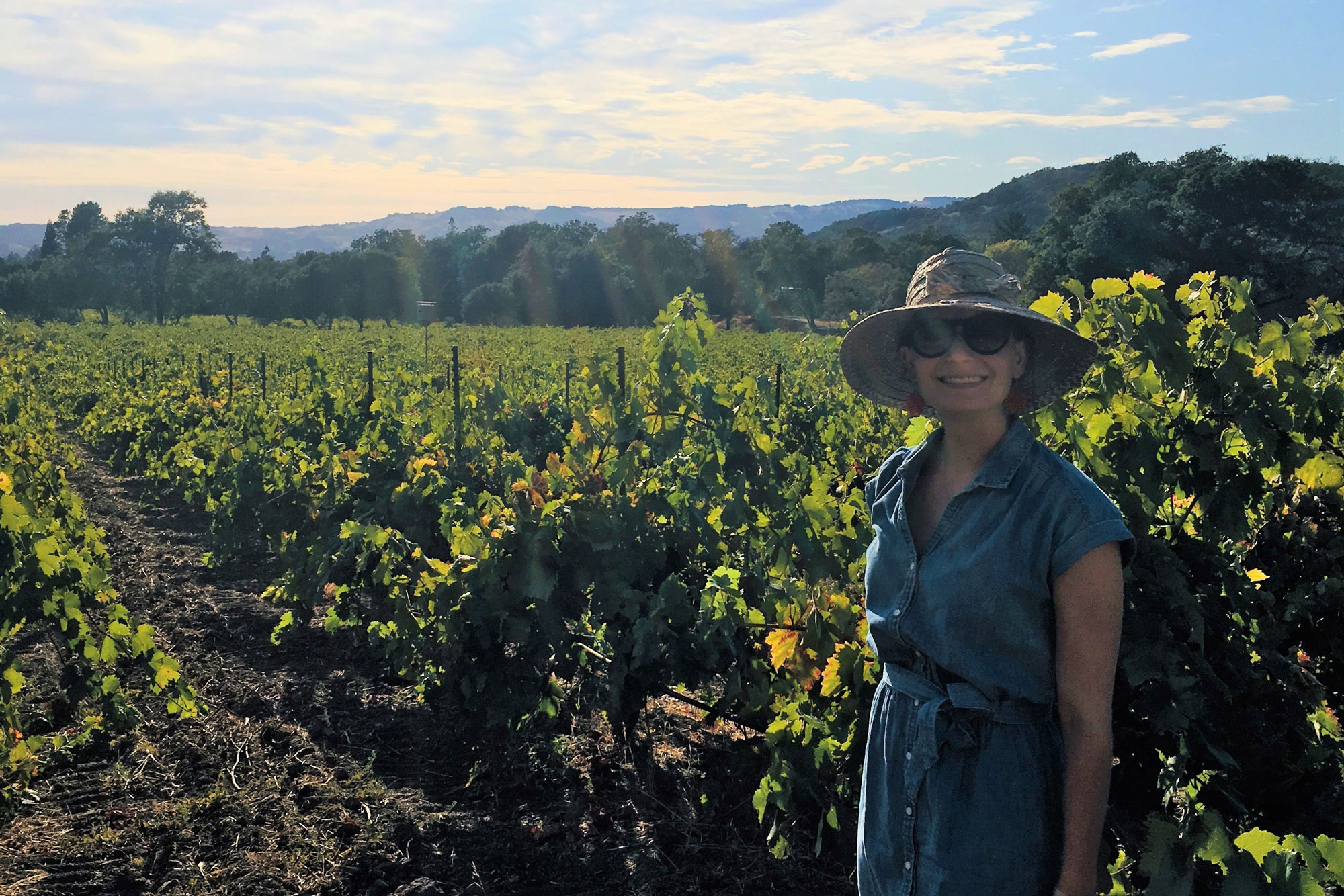California Sea Grant State Fellow Sarah Farnsworth interviewed California Sea Grant Extension Specialist Jessica Rudnick, who is working with the Delta Stewardship Council. The Council was created to advance the state’s coequal goals for the Sacramento-San Joaquin Delta - a more reliable statewide water supply and a healthy and protected ecosystem, both achieved in a manner that protects and enhances the unique characteristics of the Delta as an evolving place. In this Q&A, Jessica explains how she is working to incorporate social sciences into the Council’s decision making processes. Responses have been lightly edited.
Tell me about your background and how you started working with Sea Grant?
I grew up in the St. Louis area of Missouri and from a pretty young age was interested in food and agriculture — I was sitting in the ‘breadbasket’ of the country. I finished my Bachelor of Arts in environmental earth science at Washington University in St. Louis. My research focused on land use change in the flood plains of the Missouri and Mississippi Rivers and the challenges of farmland flood protection. This research experience helped me transition from looking at the natural science side of the system (the biophysical landscape) into the policy perspective and land use planning. My mentor encouraged me to ask questions and follow my line of curiosity.
I then worked at a small educational farm and thought about the farm as a broader social system considering food security and food access. The lead farmer was from the Sacramento Valley and he encouraged me to go to California and learn how large scale diverse agricultural production works. It’s a very different system here than the Midwest, but there are some interesting crossovers with water use and planning. That brought me to the U.C. Davis, where I earned my master’s and PhD in human ecology and social systems, human decision making, and behavior around agricultural environmental issues.
In grad school, I worked with the U.C. cooperative extension, agricultural governance groups, and Delta growers to study farmer decision making around water quality issues, climate smart agriculture practices, and nitrogen management. This applied social science Sea Grant extension specialist position opened up when I finished grad school, so it was an awesome fit. It played to my interests of working in applied sciences and bringing in a better understanding of human behavior science to inform policy decisions and approaches.
How do you see the importance of social science in environmental decision making?
I think a lot of the challenges that we are facing are about people, how we make decisions, and how we collaborate on sticky issues. Understanding where people are coming from and how that influences their behavior is essential for drafting management that understands and predicts how people are going to behave in certain situations and for making policy decisions that are informed by realistic human behavior.
Could you elaborate on ways to improve the capacity for communities to be resilient in the face of climate change?
Our relationships shape our ability to absorb impacts, be adaptive, keep persisting, and keep thriving under changing climate conditions. A lot of community groups focus on building social capital and localized solutions for their specific town or city. I think highlighting that local knowledge and deep understanding of localized impacts and then allowing that local knowledge to direct resources and activities is an important part of building that capacity for resilience. There is this level of granularity that we just don’t catch otherwise.
You’ve been working on developing a collaborative social science community in the Delta, do you want to speak more on that?
The Delta Stewardship Council created the Social Science Task Force, an external group of social science experts, tasked with analyzing how social science is being used throughout the Delta and what the challenges to integrating more social science are. One of the key recommendations was to invest in building a more active network of social scientists that work in this region, which led to why my position was developed.
We are currently developing the organization and priorities of this network and raising awareness to recruit other members that would be good assets to participate in this. The goal is to bring in more social science research capacity to the Council’s efforts and provide more connectivity between the group so that collaborative teams can be formed across natural and social scientists to solve the pressing questions faced in the Delta.
Are there any other projects you are excited about?
The action-oriented research project that I’m starting to get underway is developing a demographically representative survey for Delta residents. We tend to make assumptions about the people who live in the Delta, so the goal is to develop a more data driven understanding of Delta communities, how they experience environmental change, and how that affects daily life.
I’m also excited about our brown bag series we are planning for this fall to bring in more social science perspectives from other parts of the state or country and think about what we can learn from studies going on elsewhere that may be applicable to the Delta.
Is there anything else you want people to know about the Delta or social-environmental decision making?
The Delta is a very complex part of California that influences so many people across the state. It is this very interesting case study of a lot of complicated problems overlapping and a lot of decision making happening at different scales and with different focuses. It is the crux of how we do environmental governance, in the sense of how we manage resources for multiple users with different needs and priorities in a way that hopefully optimizes equity and sustainability in the long run.
